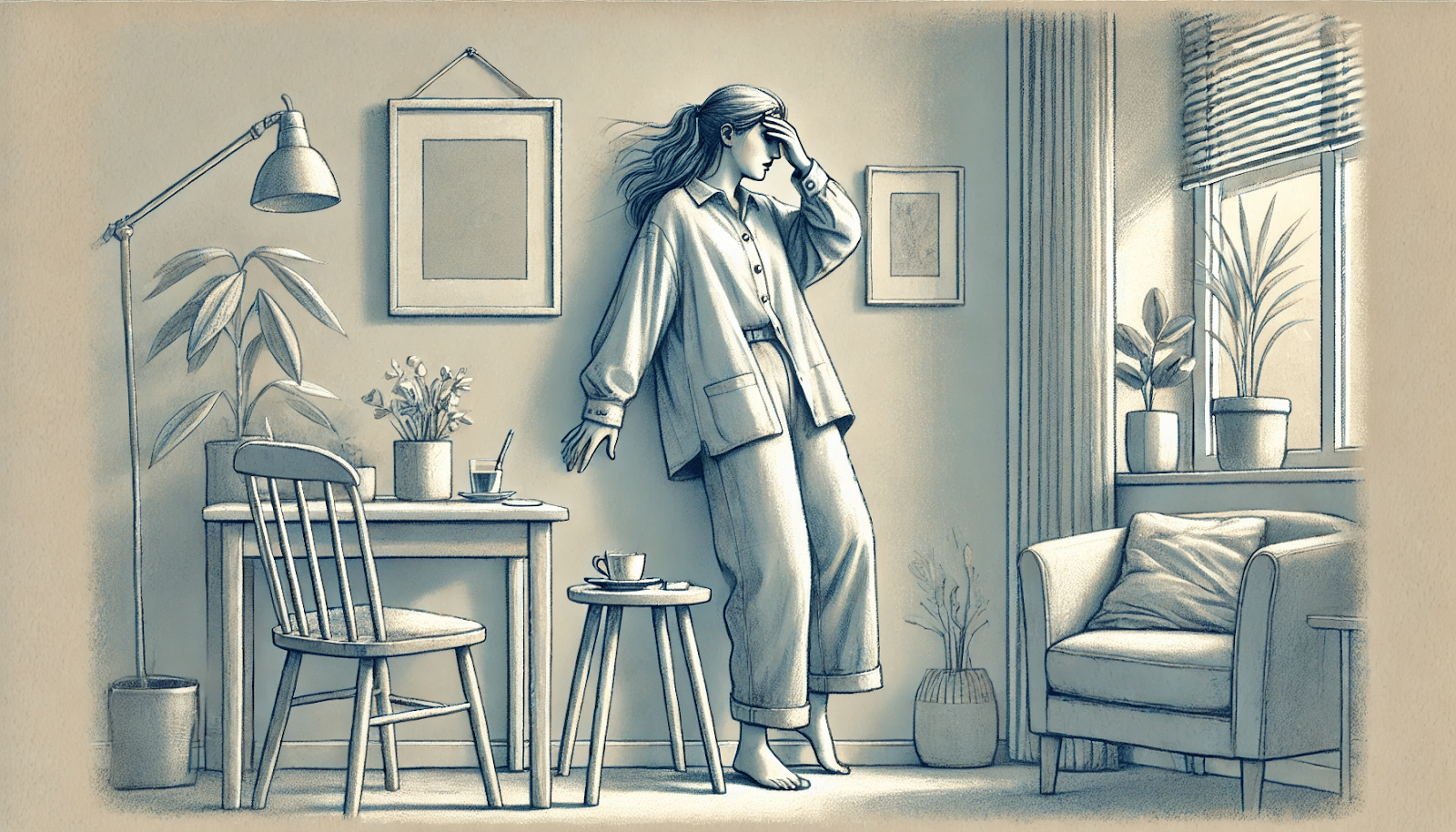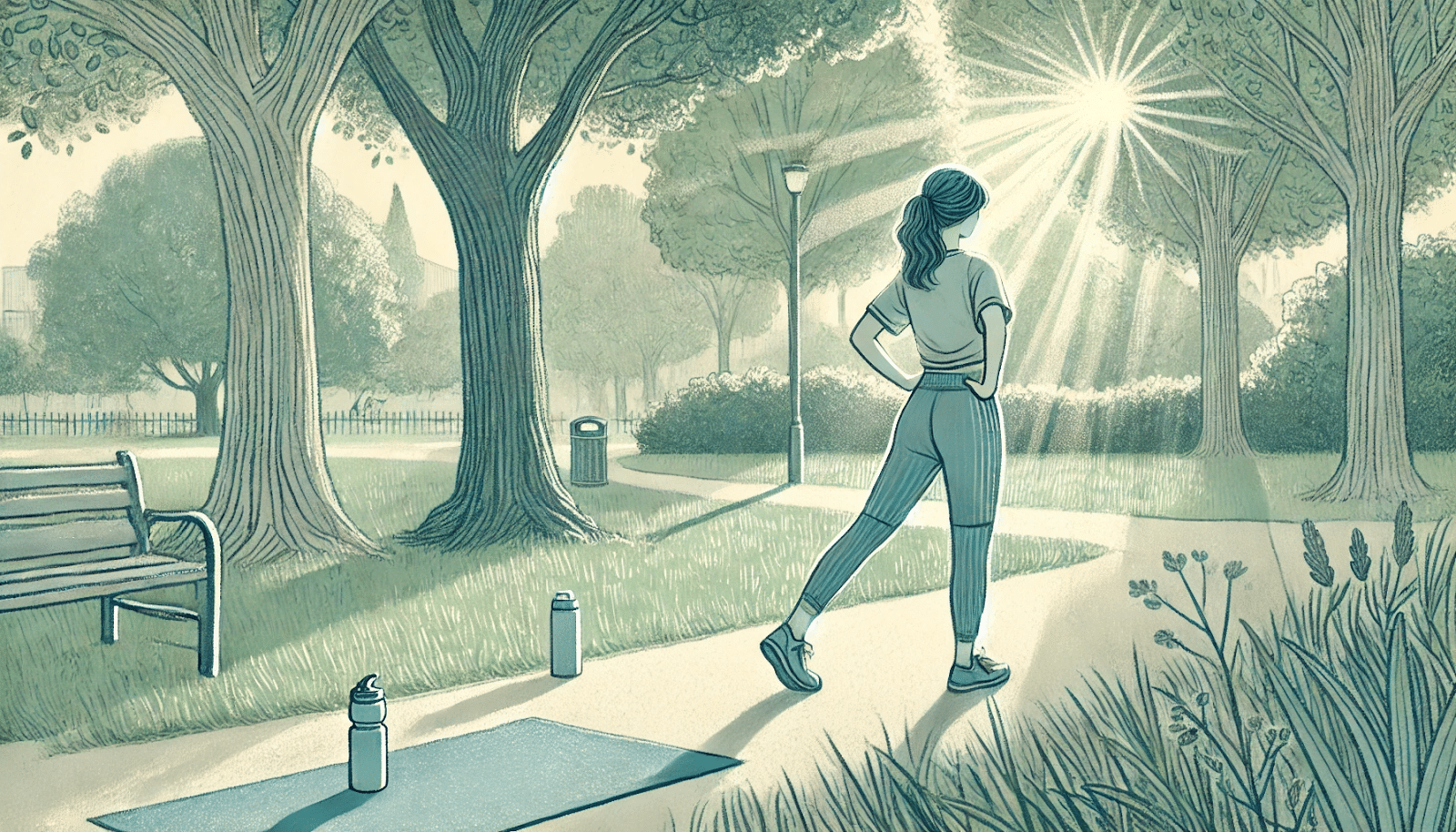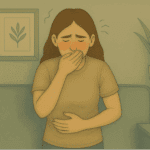Key Takeaways
- Vertigo is characterized by a spinning sensation and can be triggered by anxiety, stress, or inner ear issues.
- Anxiety can cause vertigo through physical reactions such as adrenaline surges and hyperventilation.
- Managing anxiety-induced vertigo involves relaxation techniques, breathing exercises, and lifestyle adjustments.
- A Mission for Michael (AMFM) offers comprehensive anxiety treatment across multiple locations, with personalized care using evidence-based therapies like CBT and DBT.
Understanding the Anxiety and Vertigo Link
Vertigo isn’t just about feeling dizzy. It’s a specific type of dizziness that involves a spinning or rotational sensation. This feeling can stem from various causes, including issues in the inner ear, but anxiety plays a significant role.
When you’re anxious, your body’s fight-or-flight response can kick in, releasing adrenaline and causing symptoms like rapid heartbeat and dizziness. Besides that, anxiety can cause hyperventilation, which leads to a decrease in carbon dioxide levels in the blood, further exacerbating feelings of dizziness.
Common Misconceptions
One common misconception is that vertigo is simply a fear of heights. While vertigo can occur at heights, it is not limited to these situations. Vertigo can occur even when you’re lying down or sitting still.
Another misconception is that anxiety-induced vertigo is purely psychological. In reality, the physical symptoms are very real and can be debilitating if not addressed.
Founded in 2010, A Mission For Michael (AMFM) offers specialized mental health care across California, Minnesota, and Virginia. Our accredited facilities provide residential and outpatient programs, utilizing evidence-based therapies such as CBT, DBT, and EMDR.
Our dedicated team of licensed professionals ensures every client receives the best care possible, supported by accreditation from The Joint Commission. We are committed to safety and personalized treatment plans.
What is Vertigo?
Vertigo is a symptom rather than a condition itself. It refers to the sensation that you or your surroundings are moving or spinning. This feeling can be mild or severe, making it difficult to maintain balance or perform daily activities.
Symptoms Explained
Common symptoms of vertigo include a spinning sensation, dizziness, balance issues, nausea, and sometimes vomiting. These symptoms can vary in intensity and duration, lasting from a few seconds to much longer periods.
Potential Causes
Vertigo can be caused by various factors, including inner ear infections, Meniere’s disease, vestibular neuritis, and BPPV (benign paroxysmal positional vertigo). However, anxiety can also trigger vertigo symptoms, either directly or by exacerbating existing conditions.
How Anxiety Triggers Vertigo
Adrenaline’s Role
Adrenaline is a hormone released during stress or anxiety, preparing your body to react to perceived threats. While this response can be beneficial in dangerous situations, it can also lead to vertigo symptoms.

The surge of adrenaline can cause rapid heartbeats and increased blood flow, leading to dizziness and a sense of imbalance.
Impact of Hyperventilation
Hyperventilation, or rapid breathing, is a common response to anxiety. It reduces carbon dioxide levels in your blood, leading to dizziness and lightheadedness. This reaction can trigger or intensify vertigo symptoms, creating a vicious cycle of anxiety and dizziness.
Muscle Tension Effects
When you’re anxious, your muscles tend to tense up. This tension can affect your neck and head, leading to dizziness and vertigo. It’s like having a tight rubber band around your head, squeezing and pulling, which can disrupt your sense of balance.
Managing Anxiety-Induced Vertigo
Relaxation Techniques
One effective relaxation technique is progressive muscle relaxation. This practice can help reduce muscle tension, which often contributes to vertigo symptoms.
Muscle relaxation involves tensing and then slowly releasing each muscle group in your body, starting from your toes and working your way up to your head. This technique helps calm the mind and reduce the physical symptoms of anxiety, which can, in turn, alleviate vertigo.

Relaxation techniques can be a powerful tool in managing anxiety-induced vertigo.
Breathing Exercises
When you feel anxious, your breathing often becomes shallow and rapid, which can lead to hyperventilation and vertigo. Practicing controlled breathing can help counteract this response.
Here’s a step-by-step breathing exercise you can try out:
- Step 1: Find a Comfortable Position
- Sit upright in a chair with your feet flat on the floor, or lie down with your arms at your sides and palms facing up.
- Loosen any tight clothing and close your eyes if you feel comfortable.
- Step 2: Place Your Hands
- Place one hand on your chest and the other on your stomach, just below your ribcage. This will help you notice your breath and encourage diaphragmatic (deep belly) breathing.
- Step 3: Inhale Slowly
- Breathe in gently through your nose for a count of 4.
- Focus on sending the air deep into your belly so only the hand on your stomach rises, while the hand on your chest remains mostly still.
- Step 4: Hold Your Breath
- Hold your breath for a count of 4. If this feels uncomfortable, you can skip the hold or shorten it.
- Step 5: Exhale Slowly
- Exhale slowly and fully through your mouth, pursing your lips as if you’re blowing out a candle, for a count of 6. Try to make your exhale longer than your inhale, which helps activate your body’s relaxation response.
- Step 6: Repeat
- Continue this breathing pattern—inhale for 4, hold for 4, exhale for 6—for at least 5 cycles or until you feel calmer. Focus your attention on the feeling of your breath and the rise and fall of your hands
Mindfulness and Meditation
Meditation and mindfulness practices can help you become more aware of your thoughts and emotions, allowing you to manage anxiety more effectively. These practices encourage you to focus on the present moment, reducing stress and promoting a sense of calm.
Lifestyle Changes for Long-Term Relief
Dietary Considerations
Your diet plays a significant role in managing anxiety and vertigo symptoms. Consuming a balanced diet with plenty of fruits, vegetables, lean proteins, and whole grains can help stabilize blood sugar levels and support overall health.
Exercise and Physical Activity
Regular exercise is a powerful tool for managing anxiety and its symptoms. Physical activity releases endorphins, which are natural mood elevators, and can help reduce stress levels.
Besides that, exercise improves circulation and balance, which can help alleviate vertigo symptoms.

Aim for at least 30 minutes of moderate activity most days of the week.
Sleep Quality Improvement
Poor sleep can exacerbate anxiety symptoms and make it more challenging to cope with stress. Establish a regular sleep schedule, create a relaxing bedtime routine, and ensure your sleep environment is comfortable and conducive to rest.
When to Seek Professional Help
Persistent Symptoms
If you find that your dizziness or spinning sensations continue despite trying self-care strategies, seek further help. Persistent symptoms might indicate an underlying condition that requires professional intervention.
Some signs that your symptoms are persistent include frequent episodes of dizziness that interfere with daily activities, nausea that doesn’t subside, or balance issues that increase your risk of falling. These symptoms can affect your quality of life and may require a more comprehensive approach to treatment.
Treatment Options
When dealing with persistent vertigo symptoms caused by anxiety, a combination of treatments may be necessary. Medications can be prescribed to help manage both anxiety and vertigo symptoms.
These might include anti-anxiety medications or vestibular suppressants that target dizziness specifically. In addition to medication, therapy can be a valuable tool. Cognitive Behavioral Therapy (CBT) is effective in addressing anxiety and can help you develop coping strategies to manage vertigo symptoms.
Finding Relief for Anxiety-Induced Vertigo with AMFM
The connection between anxiety and vertigo is both real and significant. At AMFM, we understand these complex physiological reactions and offer comprehensive treatment approaches that address both the psychological and physical aspects of anxiety-induced vertigo.

We have home-like treatment centers to facilitate your complete recovery from anxiety.
With multiple facilities in California, Virginia, and Washington, we provide personalized care ranging from residential treatment to flexible outpatient programs based on your specific needs.
Our licensed clinicians specialize in evidence-based therapies like CBT and Dialectical Behavioral Therapy (DBT) that help you identify anxiety triggers and develop effective coping strategies to break the cycle of anxiety and dizziness. We’ll work with you to incorporate relaxation techniques, breathing exercises, and lifestyle adjustments that can significantly reduce vertigo symptoms.
Don’t let anxiety-induced vertigo control your life. Call us today at 866-478-4383 for a free assessment and take the first step toward regaining your balance both physically and emotionally.
Frequently Asked Questions (FAQ)
What are the primary symptoms of vertigo?
Vertigo symptoms include a spinning sensation, dizziness, balance issues, nausea, and sometimes vomiting. These symptoms can vary in intensity and duration, impacting daily activities and quality of life.
How does anxiety affect the body physically?
Anxiety triggers the body’s fight-or-flight response, releasing adrenaline and causing physical symptoms like rapid heartbeat, hyperventilation, and muscle tension. These responses can contribute to vertigo symptoms.
Can lifestyle changes help manage vertigo symptoms?
Yes, lifestyle changes can be highly effective in managing vertigo symptoms. Incorporating regular exercise, a balanced diet, and proper sleep can help stabilize blood sugar levels and reduce anxiety, alleviating vertigo symptoms.
When should someone see a doctor for vertigo?
If vertigo symptoms persist, worsen, or interfere with daily life, consult a healthcare professional. They can help identify underlying causes and recommend appropriate treatments, such as medication or therapy.
What makes AMFM’s approach to anxiety treatment different from other providers?
AMFM’s approach stands out through its comprehensive assessment process that creates personalized treatment plans addressing both psychological and physical symptoms of anxiety.
Our licensed clinicians specialize in evidence-based therapies across multiple levels of care (residential to outpatient) with locations in California, Virginia, and Washington, making quality care more accessible.












